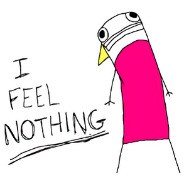Раскройте скобки, образуя first, second и third conditional от каждого предложения. 1) if she (to find out) the truth, she (to be) very happy. 2) i (to visit) him in the hospital, if i (to know) about his illness. 3) if we (not to like) his suggestion, we (to tell) him about it. 4) if john (to want) the advice, he (to ask) you. 5) if his sister (to have) better qualification, she (to be able to) apply for better job. 6) they (to find) the solution, if they (to understand) the problem. 7) if beth (to go) to her native town, she (to be) happier. 8) if you (not to agree) with me, i (to go) to the director. 9) what you (to do), if he (tell) you to leave?
182
431
Ответы на вопрос:
1) if she find out the truth, she will be happy. if she found out the truth, she would be happy. if she had found out the truth, she would have been happy. 2) i will visit him in the hospital, if i know about his illness. i would visit him in the hospital, if i knew about his illness. i would have visited him in the hospital, if i had known about his illness. 3) if we don't like his suggesion, we will tell him about it. if we did'nt like his suggesion, we would tell him about it. if we had't liked his suggesion, we would have told him about it. 4) if john wants advice, he will ask you. if john wanted advice, he would ask you. if john had wanted advice, he has asked you. 5) if his sister has better qualification, she will be able to apply for better job. if his sister had better qualification, she would be able to apply for better job. if his sister had had better qualification, she would has been able to apply for better job. 6) they will find solution, if they undestand the problem. they would find solution, if they undestood the problem. they would have found solution, if they had undestood the problem. 7) if beth goes to her native town, she will be happier. if beth went to her native town, she would be happier. if beth had gone to her native town, she would has been happier. 8) if you don't agree with me, i will go to the director. if you didn't agree with me, i would go to the director. if you had't agreed with me, i would have gone to the director. 9) what you will do, if he tells you to leave? what would you do, if he told you to leave? what would have you done, if he have told you to leave?
Past simple - это прошедшее время ( проще говоря ). пример : я был в школе - i was at school. was - был. was- единственное число , а множественное - were (были). они были в школе - they were at school. в таких предложениях как : "я играл в теннис", и т.д используется такая форма утверждение: i played we played и т.д. отрицание: i didn' t play we didn't play и т.д вопросительные предложения : did i play? did we play? и т.д так же, в языке, в прошедшем времени есть исключения : saw - видел, ate - ел и т.д (на это есть специальные словари).
Популярно: Английский язык
-
Все ! 41. – преобразуйте предложения в косвенную речь. 1. how long do you...
 хорошистка55217.04.2020 07:26
хорошистка55217.04.2020 07:26 -
Choose the sentences with the noun in the possesive case 1 my father s got...
 vovavo200710.08.2021 23:02
vovavo200710.08.2021 23:02 -
Как правильно расставить слова в предложении you stay where there did...
 vladkaz2100430.12.2020 09:41
vladkaz2100430.12.2020 09:41 -
Choose the correct prepositions to fill in the gaps Today is a nice sunny...
 Lulu808004.10.2022 19:54
Lulu808004.10.2022 19:54 -
Варианты ответов: 1.союз, предл. + мест, мест. +частица, неопред. мест 2.союз,...
 Дракончик2213.09.2021 23:01
Дракончик2213.09.2021 23:01 -
составить диалог по образцу...
 EmilN30418.12.2022 07:01
EmilN30418.12.2022 07:01 -
Нужно поставить нужное слово и перевести здилайте...
 belya8401.10.2022 20:02
belya8401.10.2022 20:02 -
Какие есть четыре части england, northern ireland, wales...
 анастасия154804.08.2021 05:48
анастасия154804.08.2021 05:48 -
Плз нужно 5 предложений почему ты любишь на...
 BashProcker01.11.2020 22:10
BashProcker01.11.2020 22:10 -
Напишите пецепт кокого нибудь салатика! из фруктов! на ! и в зарание!...
 ТанечкаКоновалова27.05.2022 19:33
ТанечкаКоновалова27.05.2022 19:33
